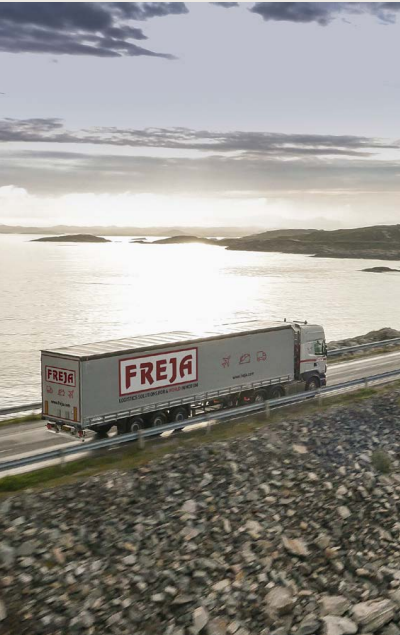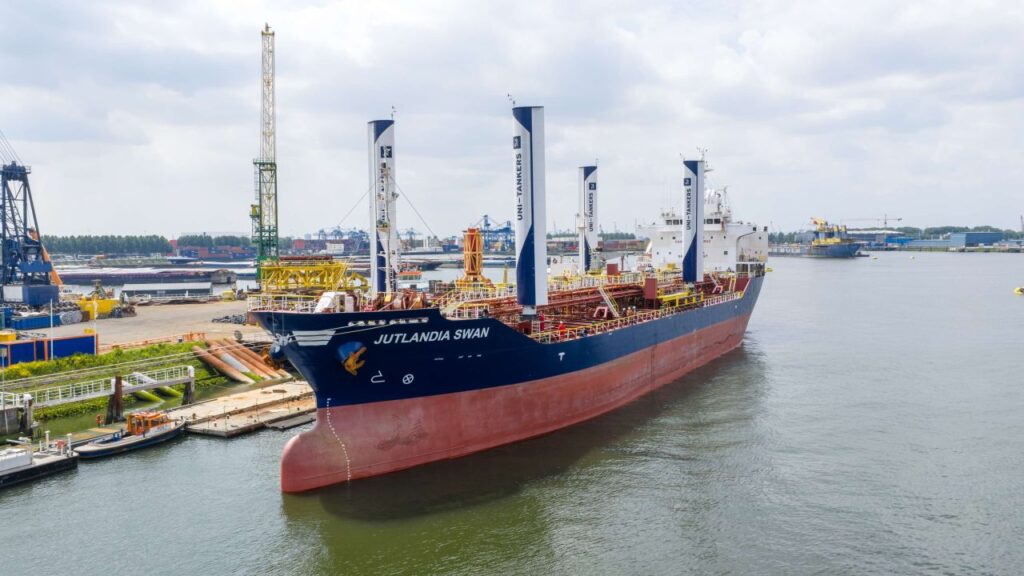
SDK Freja Sweden and Finland leading the way through strategic partnerships
Both FREJA Sweden and FREJA Norway locations serve as prime examples of the key role that close partnerships play in making progress towards achieving sustainability goals. Through collaborative initiatives with clients and suppliers, these entities have achieved significant reductions in their carbon emissions in their respective countries.
Responding to growing client demand for alternative fuel solutions, FREJA Sweden has proactively engaged in
assisting customers in analysing their entire logistics processes to identify areas where measures to decrease their carbon footprint could be taken. Furthermore, by
upholding subcontractors to the same high standards, FREJA Sweden encourage them to explore ways to minimise the company’s carbon footprint.
Søren Skive, Deputy Managing Director of FREJA Sweden, emphasises the dedication to continuous learning in sustainable practices through close collaborations, stating, “We continuously educate ourselves on biofuel diesel through our partnerships. Our aim is to be recognised as an innovative and
environmentally conscious partner, prioritising sustainability over mere transportation.”
FREJA Finland has also made significant strides in reducing our carbon footprint by adopting Kaukokiito BIO service, the HVO Diesel solution provided by Kaukokiito, our long-term domestic partner. Through this partnership, effective August 2024, all domestic transportation services in Finland have transitioned to HVO Diesel from conventional fuel. This transition
has led to an 87% reduction in domestic transport-related emissions in Finland. We view this as a tangible step towards achieving 50% scope 3 reduction by 2040
compared to 2021/22.
Krister Heinonen, Business Development Director of FREJA Finland, highlights the importance of availability and the needed infrastructure to achieve our sustainability goals, “We continually explore opportunities, whether within existing partnerships or through new collaborations, to reduce our carbon
footprint. While we are also investigating the potential of electric trucks and biogas, the feasibility depends on the availability of necessary infrastructure. This remains a
challenge we collectively need to solve in order to keep achieving our sustainability targets.”



